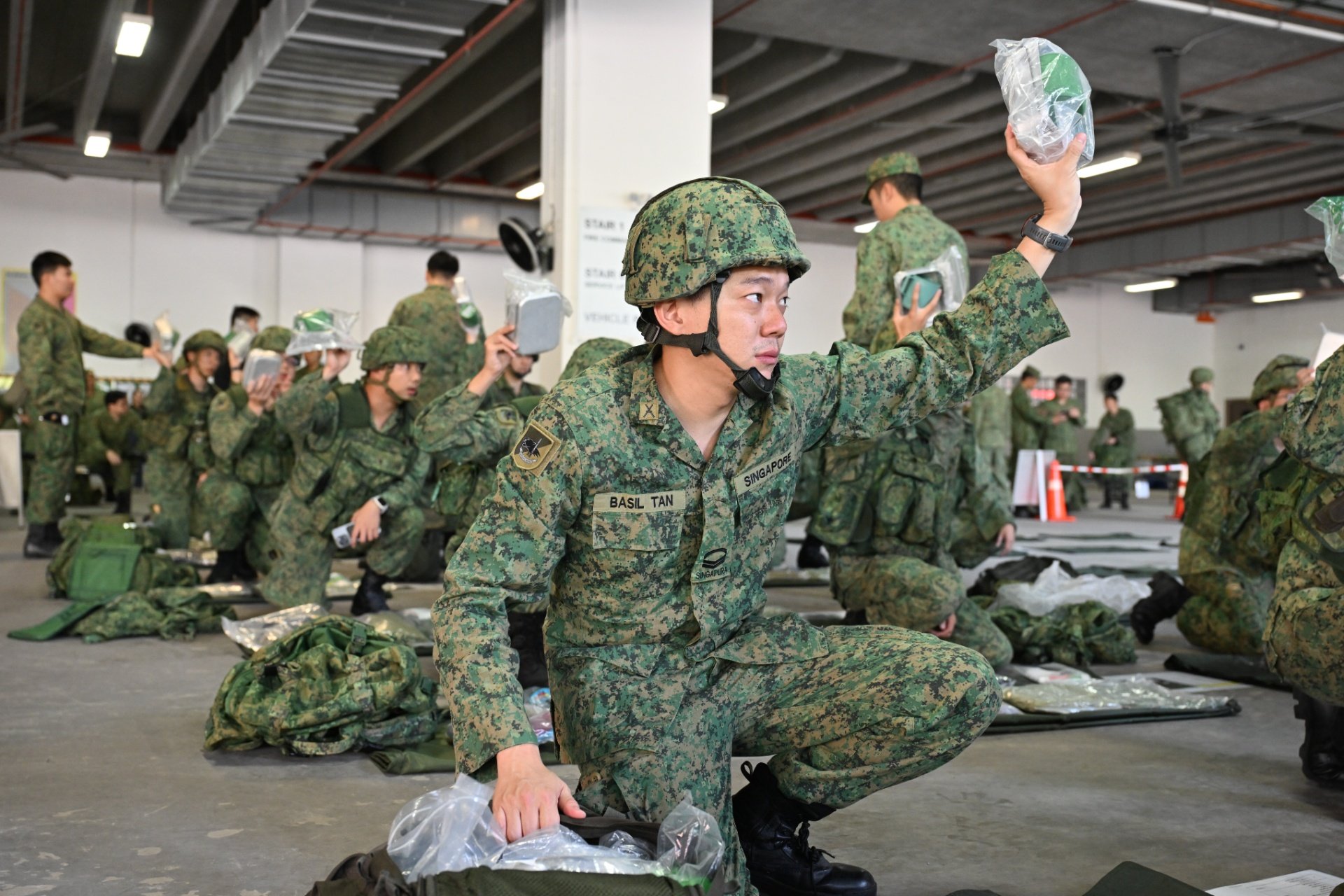OPS & TRAINING
ARMY'S NEW PX TO REPLACE 5BX
13 Sep 2021
The new Prehabilitation Exercises (PX) aim to help soldiers perform better and reduce the risk of injury over time.
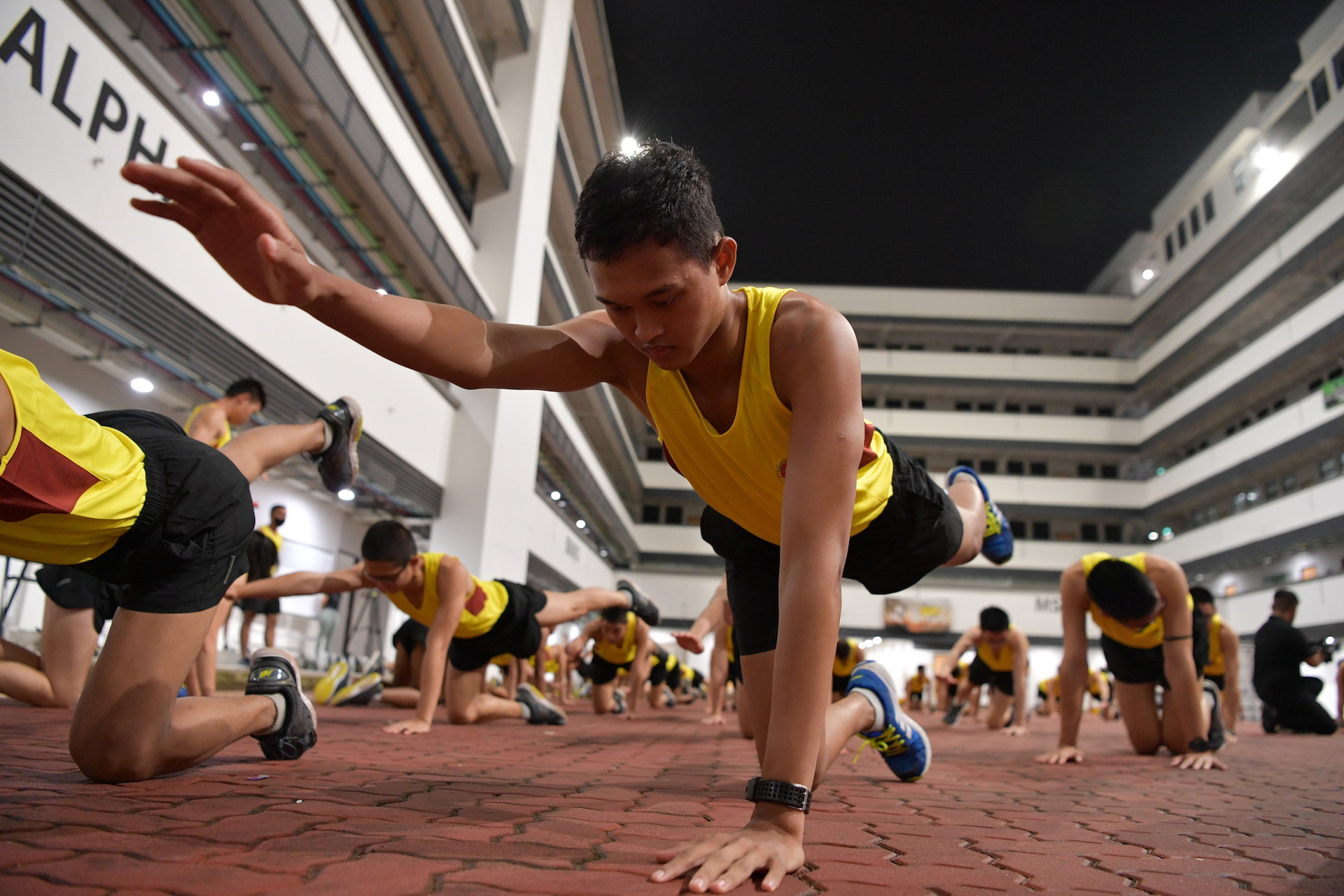

The Singapore Army has introduced a new set of exercises – the PX – which will replace the current five basic exercises, which are more commonly known as 5BX.
Usually performed in the morning, 5BX helped soldiers to quickly ready their bodies for the day's activities. It consists of jumping jacks, the high jumper, crunches, push ups and running; and has been in place since the 1970s.
On the other hand, PX is a set of core-strengthening exercises and stretches, to help reduce the risk of musculoskeletal (MSK) injuries.
The programme was designed by physiotherapists and sports scientists at the Centre of Excellence for Soldier's Performance (CESP).
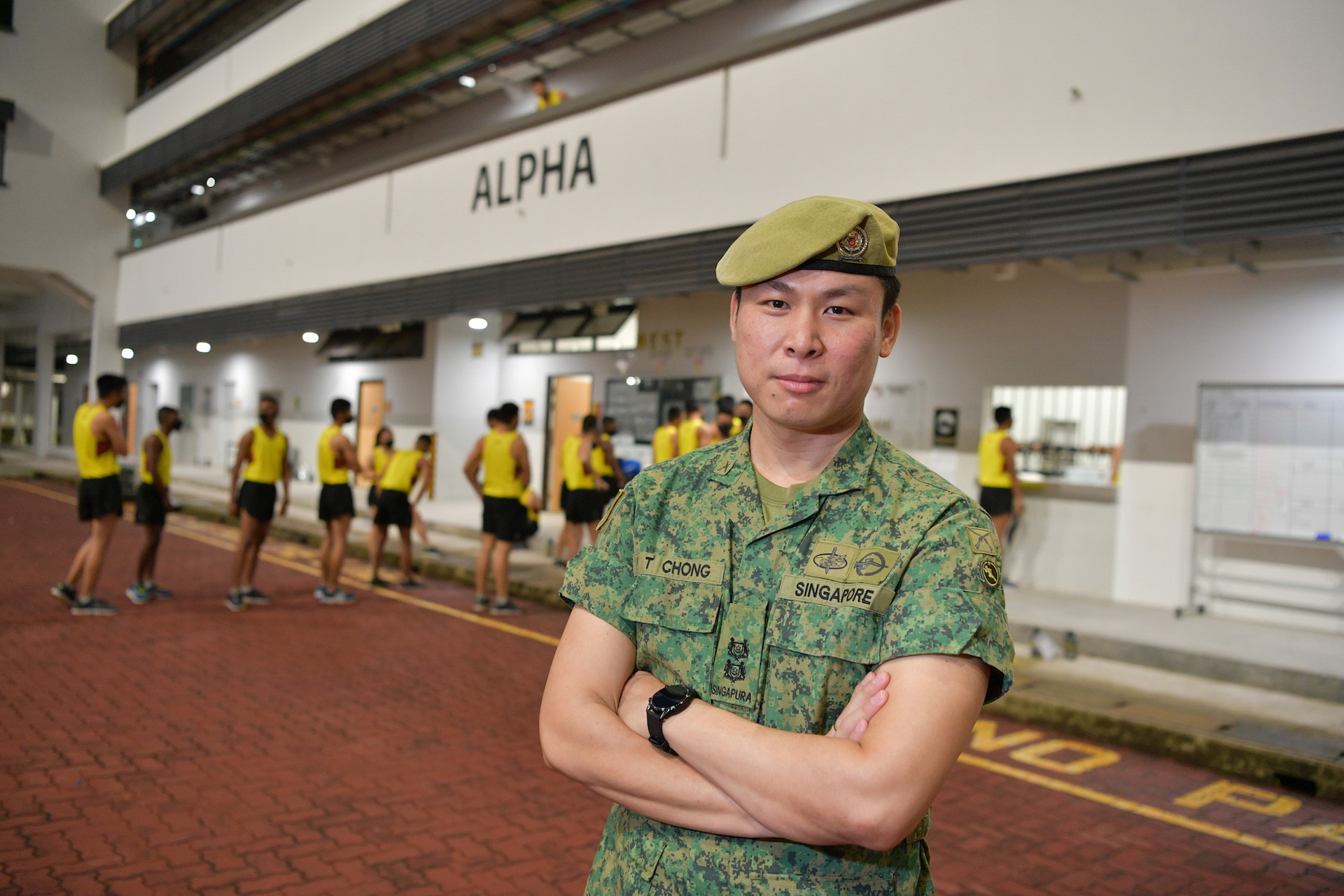
Said Lieutenant Colonel (LTC) Chong Yi Tat, who heads the Training Development Branch and Soldier System Integration Laboratory in CESP: "One of the key aims of the Army is to sustain our soldiers and make sure that they remain combat fit to defend our country.
"PX serves that aim by helping our soldiers perform at the performance level required while reducing the likelihood of MSK injuries. This serves to reduce our attrition rate in the Army and fulfil our mission going forward."
CESP first trialled PX at the Officer Cadet School over a period of two years, where it was found to contribute to the reduction of MSK injuries.
Train-the-trainer sessions on PX have been conducted for trainers and commanders from training institutes and active units since April this year.
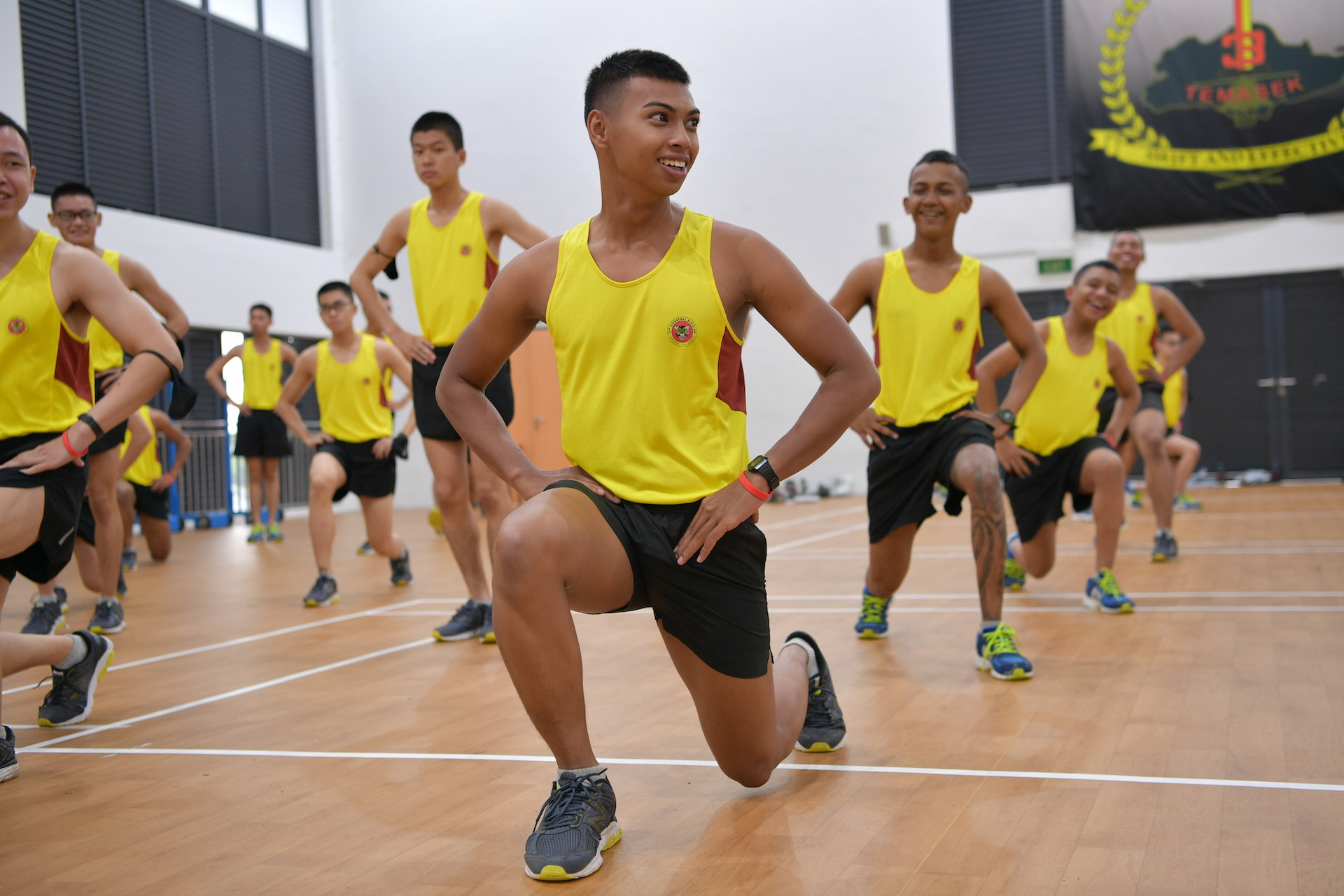
Roll out at active units
There are two PX programmes which units can choose to conduct, comprising seven and eight stations each.
Each programme is to be done twice, with the entire session lasting 30 minutes. If there are schedule constraints, units have the flexibility to conduct each programme just once.
PX includes exercises like mountain climbers and single leg bridging to build core stability; as well as the static leg flexor stretch and lower calf stretch to build flexibility and mobility.
Unlike a physical training session where the focus may be to put in as many reps as possible, PX is done slowly while maintaining good form.
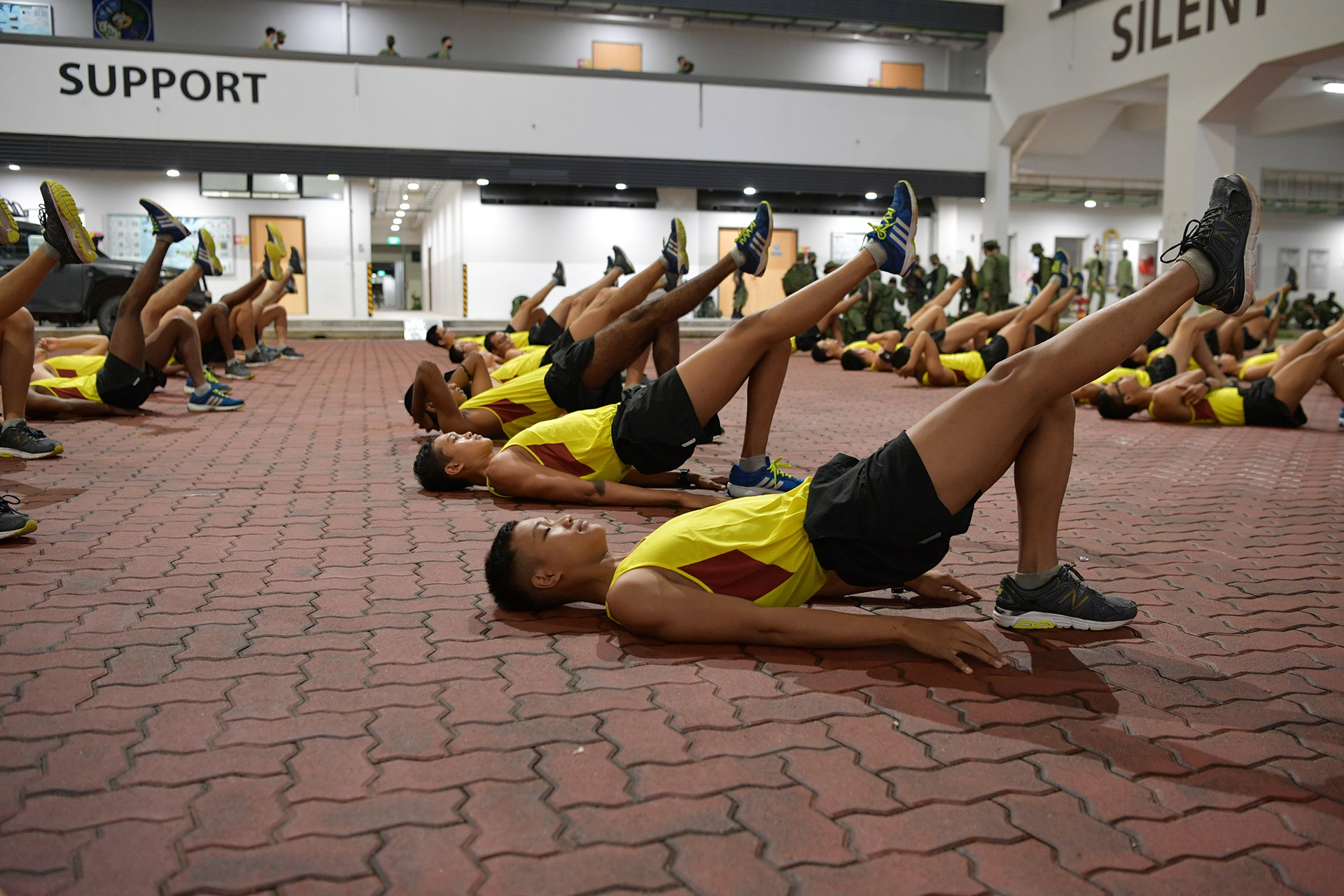
At 5th Battalion, Singapore Infantry Regiment (5 SIR), PX is done before the break of dawn, helping soldiers to stretch their body and preparing them for a day of rigorous activity.
"Given the high tempo of training and the fact that we are moving outfield almost every week, some of the common injuries our guys will suffer will be MSK injuries, especially knee, back or even ankle injuries," said Captain Muhammad Ashraf, an Officer Commanding at 5 SIR.
"PX helps to improve our soldiers' flexibility and mobility, as well as strengthen their core. This reduces the risk of common injuries that our guys face."
Strong Body Regime
PX is one of the initiatives in CESP's new Strong Body Regime, to be rolled out Army-wide by October.
The regime aims to enhance training performance of soldiers while reducing the probability of MSK injuries, said LTC Chong. "(To accomplish that), we have three approaches: to exercise better, eat better and rest better."
To exercise better, units are recommended to perform PX daily, first thing in the morning, allowing soldiers to warm up their bodies before starting the day's training.
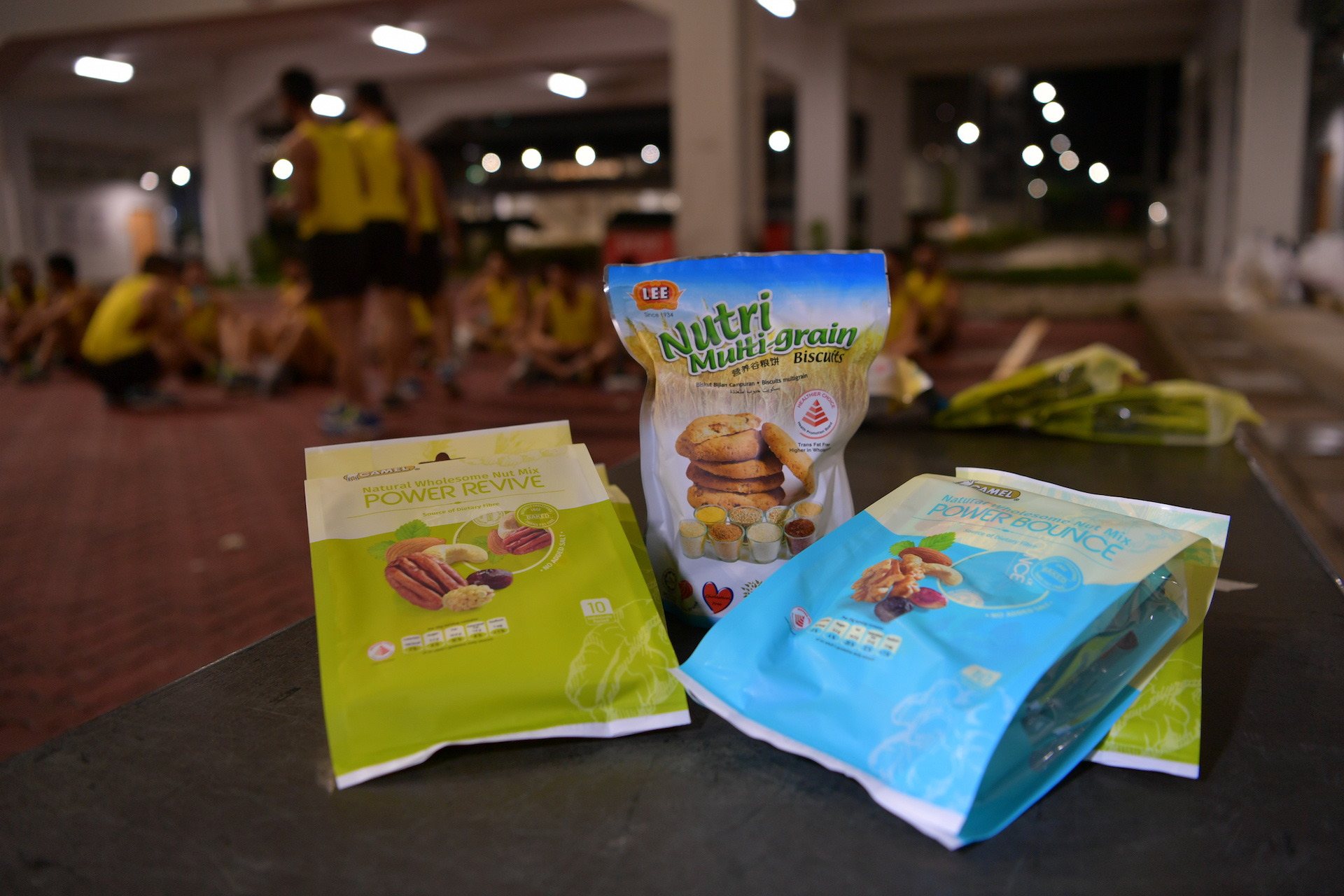
To help soldiers "eat better", CESP has introduced nutritional supplements, to provide additional carbo- or protein-rich snacks to soldiers, depending on their training activities.
For instance, if the unit has cardio training that day, such as fast marches or runs, they will be provided with carbohydrate-rich snacks. These could include sandwiches, oatmeal cookies or bananas.
Whereas if the unit was preparing for strength or hypertrophy training like combat circuits, they could be given protein-rich snacks. Examples of these are protein bars, soya bean milk and a packet of nuts.
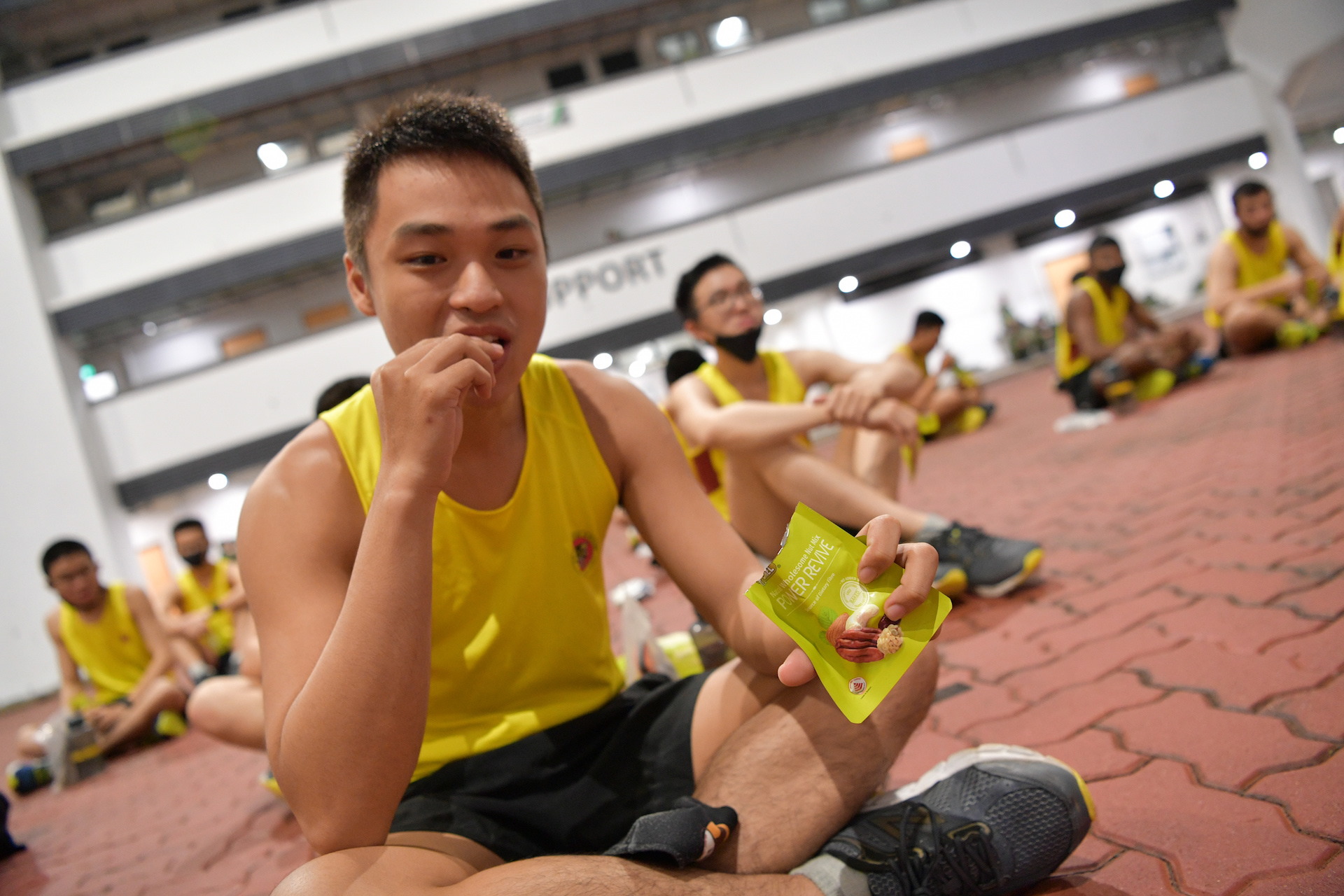
Lastly, to help soldiers "rest better", the Army is introducing a mid-week rest extension to promote passive recovery.
At 5 SIR, this means having nine hours of sleep – two hours more than usual – after the conduct of strenuous activity mid-week.
"If we have a heavy day, sometimes we get a later time to fall-in. This additional sleep is very important to us in getting our mental and physical rest," said Private Neo Zhen Yang.
The Machine Gun Gunner at 5 SIR added: "The rest helps to refresh us and keep us prepped for the next day."
ALSO READ IN OPS & TRAINING
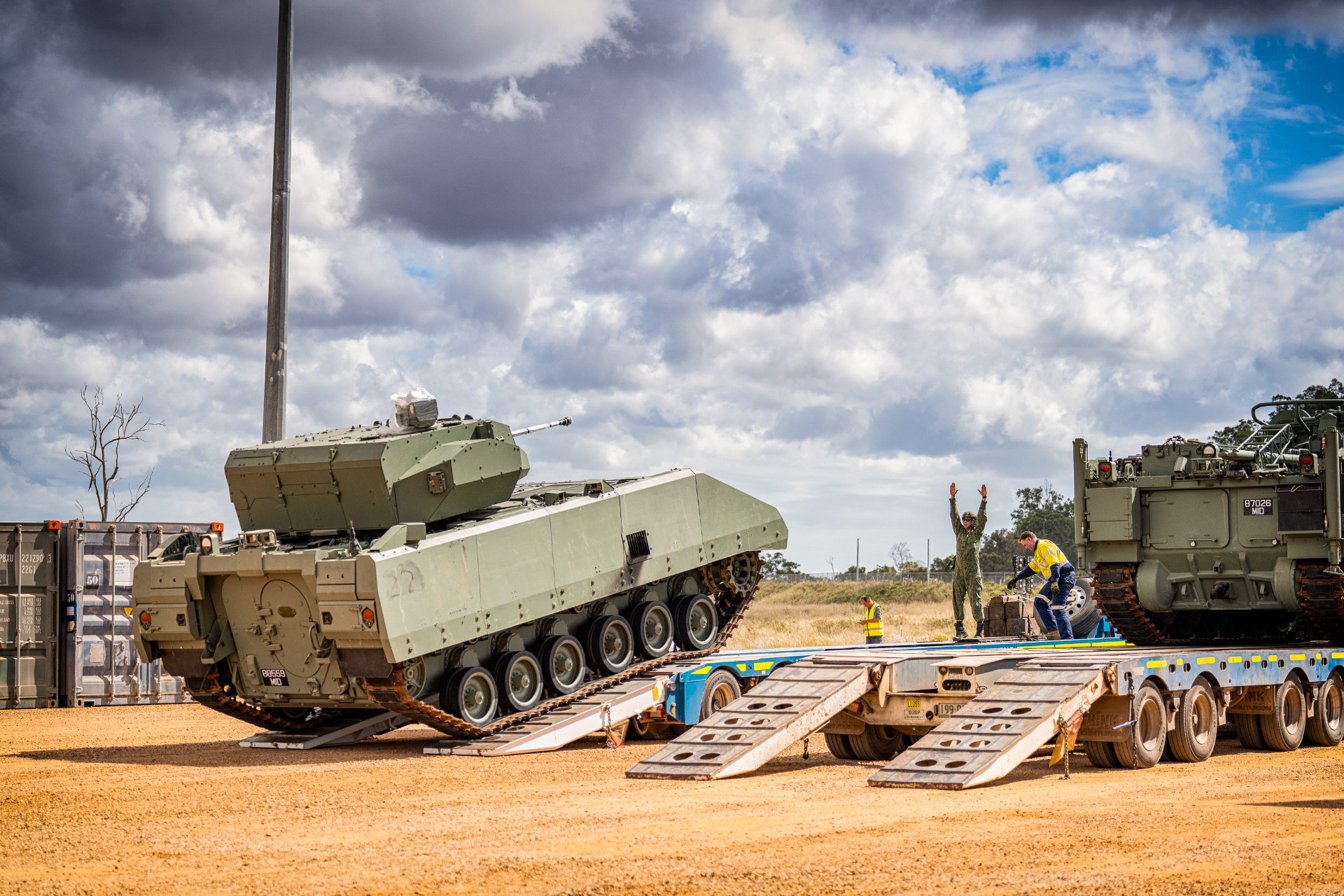
First in, last out at Ex Wallaby 2025
06 Nov 2025
Meet the teams who toil behind the scenes to enable the smooth conduct of the SAF’s biggest unilateral overseas exercise.
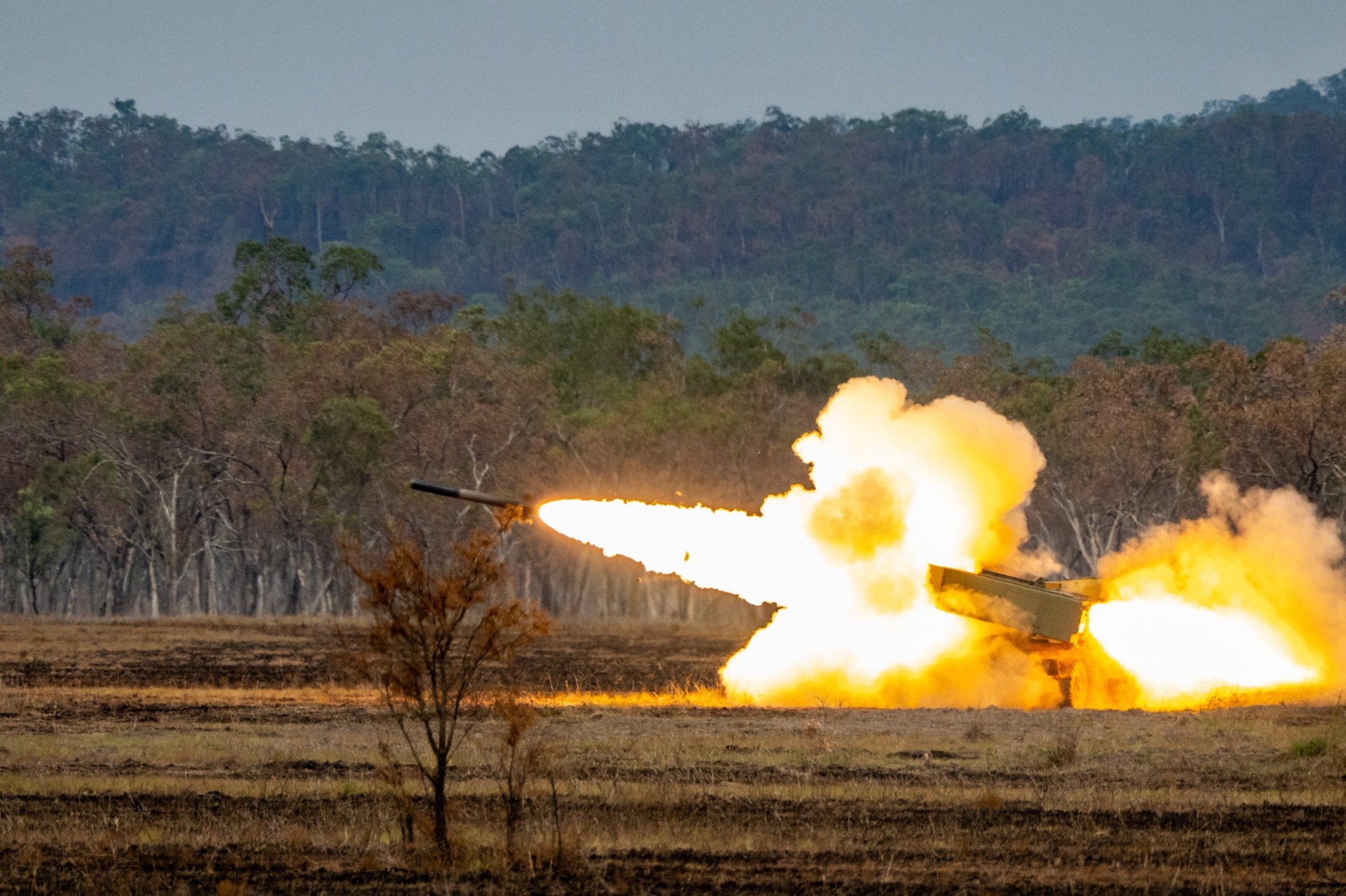
Exercise Wallaby 2025: To see better, shoot faster
31 Oct 2025
The SAF focuses on complex strike missions and multi-domain integration in Exercise Wallaby 2025, the 35th edition of its largest unilateral overseas exercise.
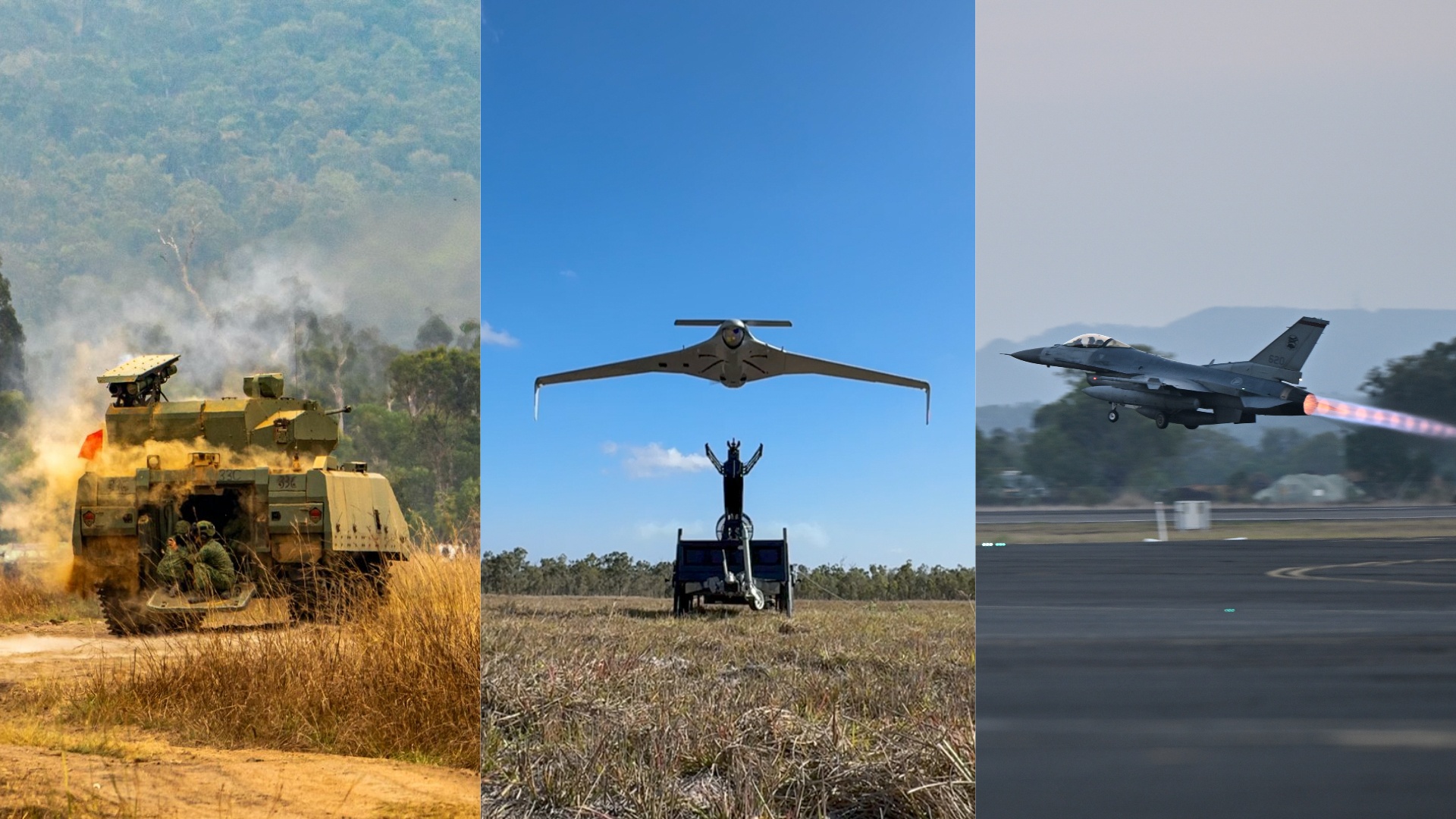
Ex Wallaby 25 – Greater Integration and Complexity
25 Oct 2025
The 35th edition of the SAF’s largest unilateral overseas exercise is an opportunity for expanded scale and deeper integration towards an effective, networked fighting force.


